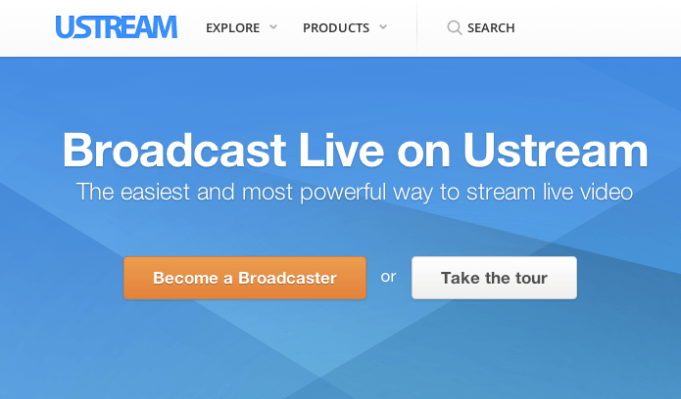Ustream has recently made moves to de-emphasize its free, live broadcasting service. But those changes are just part of a larger focus on enterprise clients.
Last week, Ustream sent an email to members who had free accounts, telling them that it was making changes to the way videos were stored or archived. The email said that videos recorded by its free, ad-supported Ustream Basic accounts would only be stored for 30 days, and then automatically deleted.
The company offered up a new unlimited storage plan for users who wish to pay for them. For $19.99 a month, Ustream is allowing its users to archive videos that they’ve already shot beyond 30 days. But for those who didn’t want to upgrade to a pro version of Ustream, the company offered the ability to download copies of their videos to store them offline.
For Ustream, culling archived videos from free users is just one step in its continued focus on enterprise accounts. Over the past year, the company has been working to add features and win over more media and business clients to its service.
Co-founder and CEO Brad Hunstable told me in a phone conversation that most of the company’s growth has come from working with major media companies. Also, he said that a small portion of the views the company gets comes from archived videos — which is one of the reasons it’s fine with having them disappear.
“Our core competency is live broadcasting and that hasn’t changed,” Hunstable said. “There are plenty of places to store videos, but 80 percent of our viewership is live.”
In addition to media companies, Ustream has seen its live streaming services used by other enterprise clients. Some of that comes from brands turning to live streaming as a way to increase visibility, but video is also being used as a way to reach customers, partners, and employees in the enterprise.
“Over the last few years, we’ve seen companies like LinkedIn, Sony, and others using our products more like a media companies,” Hunstable said. “We’re seeing public companies doing their earnings announcements through video, and also internal broadcasting.”
Founded in 2007, Ustream isn’t the only live streaming video startup to move its focus away from consumers. Competitor Livestream historically has been focused on major events as its largest source of revenue, and Justin.tv pivoted to eSports and rebranded as Twitch more than two years ago.
